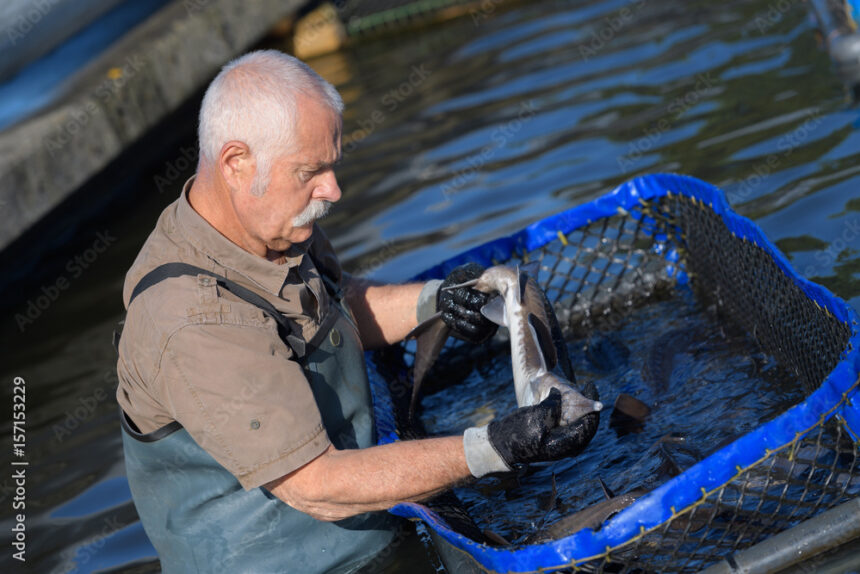Here are 10 things you should know about an Aquaculture Farmer job:
- Definition: An Aquaculture Farmer, also known as an aquafarmer, is responsible for the cultivation and farming of aquatic organisms, such as fish, shellfish, and aquatic plants, in controlled environments like ponds, tanks, or ocean enclosures.
- Varied Responsibilities: Aquaculture farmers perform a wide range of tasks, including feeding and monitoring the health of the aquatic organisms, maintaining the water quality and temperature, controlling diseases and pests, and managing the overall production process.
- Knowledge of Aquatic Organisms: Aquaculture farmers must have a good understanding of the specific aquatic species they are cultivating. This includes knowledge of their biology, growth requirements, feeding habits, and potential diseases.
- Environmental Considerations: Aquaculture farmers need to consider the environmental impact of their operations. They must ensure sustainable practices, minimize pollution and waste, and protect the local ecosystem.
- Business and Financial Management: Aquaculture farming involves managing a business, including budgeting, marketing, and financial planning. Farmers need to have basic business skills to ensure profitability and sustainability.
- Physical Demands: This job can involve physical labor, as aquaculture farmers often perform tasks such as netting, feeding, and harvesting the aquatic organisms. They may need to work in adverse weather conditions and be comfortable working in water.
- Monitoring and Maintenance: Aquaculture farmers must regularly monitor and maintain the water quality parameters, such as temperature, pH, dissolved oxygen, and salinity. This ensures the health and well-being of the aquatic organisms.
- Disease Management: Diseases can pose a significant threat to aquaculture operations. Farmers must have knowledge of disease prevention and treatment methods to ensure the health of their stock. This may involve implementing biosecurity measures and working closely with veterinarians or aquatic health professionals.
- Regulatory Compliance: Aquaculture farmers must adhere to various regulations and permits related to water usage, waste management, species selection, and other environmental considerations. Staying informed and compliant with these regulations is crucial to operate legally and sustainably.
- Continuous Learning: The field of aquaculture is constantly evolving, with new technologies and practices emerging. Aquaculture farmers must stay updated with the latest research, industry trends, and advancements in farming techniques to improve productivity and sustainability.
Remember that while these points provide a general overview, the specific responsibilities and requirements of an aquaculture farmer can vary depending on the location, type of operation, and target species.
Join 'Farmers Mag' WhatsApp Channel
Get the latest Farming news and tips delivered straight to your WhatsApp
CLICK HERE TO JOIN






